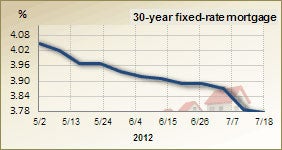- A one-time deposit of $3,333 grows to $9,196 in 15 years.
- Annual deposits of $3,333 add up to $83,755.
Find free entertainment
Between nights out at rock concerts, opera and theater performances, some Americans spend more on entertainment than on groceries and gasoline combined. To cut down entertainment expenses, try hunting for free events in your area and volunteer as an usher for live theater, for example.You could feasibly see at least two plays every weekend, and since tickets are $18 to $45 apiece, that's a lot of money if you wasn't ushering. "If you volunteer at 15 theaters, you could save probably $160 a month doing it.What it's worth: I don't recommend forgoing all cultural events, but consumers who opt for free or low-cost concerts, lectures, outdoor movies and art shows even one night per weekend can easily reduce their entertainment budget by $50 to $100 per month. For purposes of our calculation, let's split the difference and assume savings of $75 a month or $900 a year for 15 years.
- A one-time deposit of $900 grows to $2,483.
- Annual deposits of $900 add up to $22,616.
Use the public library
Home entertainment costs can be considerable if you add up cable television, satellite radio, video games and movie rentals. Young recommends getting familiar with the public library. In addition to carrying books, magazines, audiobooks, films and CDs, libraries frequently offer free children's events, language programs, financial literacy workshops and performing arts events to cut your budget down further. If the library in your area is scant on resources, check out what's on campus at the nearest college or university.What it's worth: According to the School Library Journal, the world's largest book review publication, the average cost of a new hardcover book is $26.43 ($18.02 for paperbacks). Families that buy one book per month and rent two to three movies at $4 to $5 a pop can easily run up a $30-per-month tab or $360 annually.- A one-time deposit of $360 grows to nearly $993.
- Annual deposits of $360 add up to $9,046 in 15 years.
























 Skip the stove-top boiling and oven baking. Decrease indoor heat by making microwave nachos or eating a cool salad. If you must boil pasta for tomorrow's potluck, cook in the evening.
Skip the stove-top boiling and oven baking. Decrease indoor heat by making microwave nachos or eating a cool salad. If you must boil pasta for tomorrow's potluck, cook in the evening.


